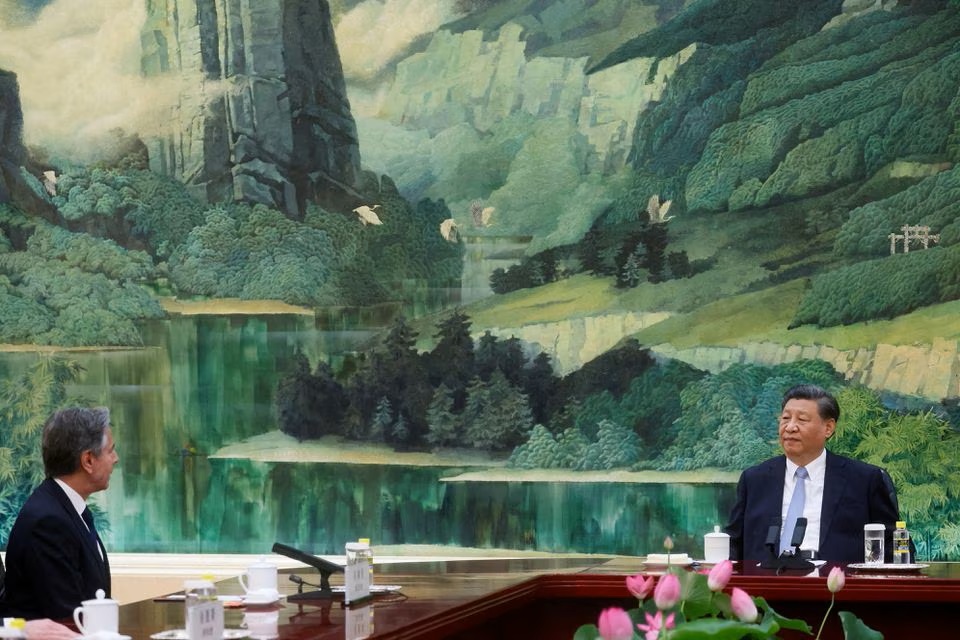
U.S. Secretary of State Antony Blinken meets with Chinese President Xi Jinping at the Great Hall of the People in Beijing, June 19, 2023.
U.S. Secretary of State Antony Blinken's visit to China represents one of the steps taken to actualize the principles discussed during the meeting between President Xi Jinping and his U.S. counterpart, Joe Biden, in Bali. The visit was initially planned for February this year, but following the "spy balloon" incident, the Biden team decided to postpone it. This decision was influenced by domestic political pressures and an attempt to leverage these pressures against China.
However, due to increasing internal and external pressures, the Biden administration felt compelled to proceed with Blinken's visit as soon as possible. Internally, as the curtain rises on the 2024 U.S. presidential election, the Biden administration must show its voters that it can uphold stability in U.S.-China relations, even while maintaining a tough stance on China, to ward off the strong criticism from the Republican Party. Externally, it needs to assuage its Asia-Pacific and European allies, reassuring them that its competitive strategy with China will not trigger a major conflict or involve its allies in such disputes.
Judging from the publicly available information about Blinken's visit to China provided by both countries, the results appear to have surpassed expectations. Five "agreements" were reached between the two parties, most importantly, an agreement to enact the significant consensus reached at the leaders' meeting in Bali. This consensus includes effectively managing differences and promoting dialogue, exchanges, and cooperation.
The fifth "agreement," which resonates strongly with the public, encourages expanding cultural and educational exchanges, exploring the addition of passenger flights between the two countries, and welcoming more students, scholars, and business people to visit each other's countries.
The commitment to return to the consensus reached at the Bali Summit is crucial. It is also critical to turn verbal promises into tangible policies, as it will allow both China and the U.S. to seize the "window of opportunity," manage differences, and facilitate cooperation on relevant issues. The proposed increase in passenger flights between the two countries is a positive governmental response to public opinion.
The Biden administration pursues a strategy of great power competition with China, while the Chinese government is advocating for a "new type of major power relations," based on principles of "mutual respect, peaceful coexistence, and win-win cooperation." The two strategies differ significantly, and their rigorous competition is projected to continue into the foreseeable future.
While the outcomes of Blinken's visit to China exceeded expectations, leading to temporary bilateral tension easing, U.S. strategic goals, policies, and approach to China are still characterized by a zero-sum mentality. This mindset is expected to continue causing various disturbances in China-U.S. relations.
Throughout the course of the Blinken two-day visit, China reaffirmed its stance on Taiwan, underscoring that the Taiwan question is at the heart of its core interests, constitutes the most critical element in China-U.S. relations, and represents the highest risk.
In terms of policy, the U.S. administration is expected to exhibit some moderation on the Taiwan question to facilitate stability in China-U.S. relations. Nevertheless, the U.S. Congress, especially its Republican members, are pushing a series of provocative "pro-Taiwan" bills that could severely damage China-U.S. relations. Additionally, with Washington's security concerns overshadowing economic considerations and a tendency to overemphasize "security," the suppression of China's key technologies and industries is unlikely to cease in the near term.